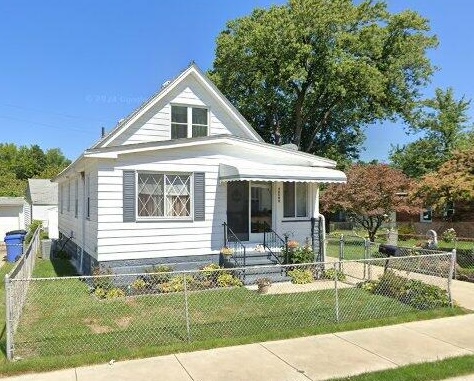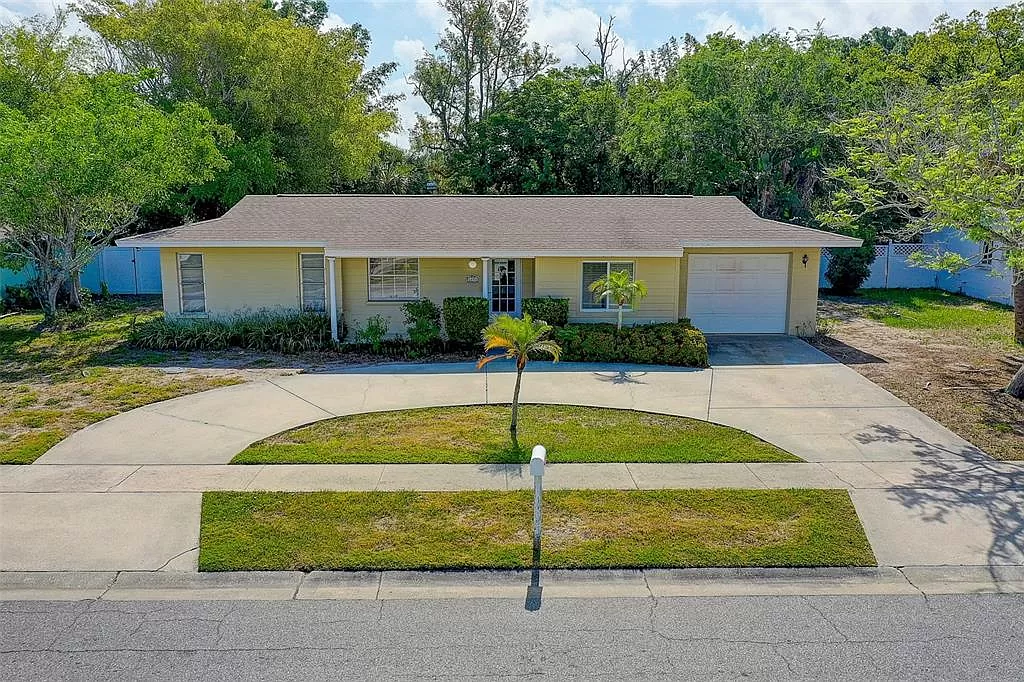Editorial Integrity
Making informed real estate decisions starts with having the right knowledge. At HomeAbroad, we offer US mortgage products for foreign nationals & investors and have a network of 500+ expert HomeAbroad real estate agents to provide the expertise you need. Our content is written by licensed mortgage experts and seasoned real estate agents who share insights from their experience, helping thousands like you. Our strict editorial process ensures you receive reliable and accurate information.
Key takeaways:
1. North Carolina offers strong rental yields thanks to affordable home prices and solid monthly rent, making it ideal for both long-term and short-term investment strategies.
2. Cities with military bases and universities provide consistent demand and lower vacancy risk, helping investors maintain steady cash flow.
3. HomeAbroad simplifies the investment process with tools like its AI-driven property search, expert real estate agents, and mortgage options such as DSCR loans tailored for rental properties.
Table of Contents
Thinking about investing in rental property this year? North Carolina might just be your smartest move in 2025. With affordable home prices, rising rents, and a strong mix of college towns, military hubs, and booming cities, the Tar Heel state is full of high-potential opportunities for investors.
The average home here costs around $331,761, while monthly rents hover at $1,742, creating solid cash flow in the right neighborhoods. Add in job growth across tech, healthcare, and finance, plus landlord-friendly laws and growing tourism, and you’ve got a rental market that checks all the boxes.
Whether you’re aiming for short-term gains or long-term stability, these 10 cities across North Carolina are worth putting on your investment radar in 2025.
1. Goldsboro
Goldsboro is known for its military roots and is home to the Seymour Johnson Air Force Base. This brings consistent rental demand from military families and government personnel, offering consistent income for property owners.
"Goldsboro’s military tenants sign long leases, keeping your cash flow steady and vacancies low." – Real Estate Agent, Wayne County
- Median Home Value: $175,142
- Average Monthly Rent: $1,419
- Long-Term Rental Yield: 9.7%
- Home Price Appreciation (2020-2025): 6.93%
- Key Insight: Focus on single-family homes for military families.
2. Rocky Mount
Rocky Mount blends Southern charm with an industrial foundation. It’s known for manufacturing, healthcare, and a low cost of living. The real estate market here offers solid returns for long-term investors.
- Median Home Value: $197,052
- Average Monthly Rent (Long-Term): $1,363
- Long-Term Rental Yield: 8.3%
- Home Price Appreciation (2020-2025): 11.42%
- Key Insight: Long-term rentals in stable neighborhoods provide a reliable source of cash flow.
3. Wilson
Wilson is a small, historic town known for its public art, especially the Vollis Simpson Whirligig Park. The community attracts families and retirees, making it a stable, lower-risk rental market.
- Median Home Value: $209,543
- Average Monthly Rent (Long-Term): $1,423
- Long-Term Rental Yield: 8.15%
- Home Price Appreciation (2020-2025): 11.60%
- Key Insight: Duplexes or small multifamily units maximize returns in this stable market.
4. New Bern
New Bern is a historic waterfront town and the birthplace of Pepsi. With its charming downtown, marinas, and tourist attractions, such as Tryon Palace, it draws steady vacation rental traffic.
- Median Home Value: $253,128
- Average Monthly Rent (Long-Term): $1,642
- Long-Term Rental Yield: 7.78%
- Home Price Appreciation (2020-2025): 9.44%
- Average Monthly Revenue (Short-Term): $2,800
- Short-Term Rental Yield: ~13.3%
- Vacancy Rate: 42%
- Key Insight: Invest in properties near historic and waterfront areas for short-term success. Long-term rentals also perform well.
5. Fayetteville
Fayetteville is a vibrant city supported by Fort Liberty, one of the largest US military bases. It also has a growing downtown and diverse economy, making it a rental hotspot.
- Median Home Value: $244,748
- Average Monthly Rent (Long-Term): $1,578
- Long-Term Rental Yield: 7.74%
- Home Price Appreciation (2020-2025): 10.46%
- Key Insight: Single-family homes near the base are ideal for long-term tenants
6. Greenville
Greenville is a lively college town and medical hub, home to East Carolina University and a large hospital system. Its youthful, renter-heavy population creates solid opportunities for rental investors.
- Median Home Value: $241,805
- Average Month
- ly Rent (Long-Term): $1,526
- Long-Term Rental Yield: 7.57%
- Home Price Appreciation(2020-2025): 9.62%
- Key Insight: Furnished rentals near ECU lease fast and generate strong returns
7. Winston-Salem
Winston-Salem is known for its strong arts scene, historical neighborhoods, and as home to Wake Forest University. It strikes a balance between culture, education, and opportunity.
- Median Home Value: $266,729
- Average Monthly Rent (Long-Term): $1,594
- Long-Term Rental Yield: 7.17%
- Home Price Appreciation (2020-2025):
- Average Monthly Revenue (Short-Term): $2,200
- Short-Term Rental Yield: ~9.9%
- Vacancy Rate: 39%
- Key Insight: Multifamily units near downtown or Wake Forest cater to both STR and long-term rental strategies.
8. Greensboro
Greensboro is a dynamic city with a strong mix of education, healthcare, and tech employers. It is also home to multiple colleges, making it attractive to students and professionals alike.
- Median Home Value: $255,059
- Average Monthly Rent (Long-Term): $1,499
- Long-Term Rental Yield: 7.05%
- Home Price Appreciation (2020-2025): 8.67%
- Key Insight: Modernized rentals near employment centers and campuses see strong occupancy and yields.
One of the investors I worked with was specifically looking for stable, long-term tenants. I recommended Goldsboro due to the strong military presence, and within days of closing, they had a lease signed by an Air Force family. The long-term lease and low vacancy rate helped them start cash flowing immediately.
9. Shelby
Shelby is a small, quiet town near Charlotte that offers low property prices and simple management. Known for its music heritage and friendly atmosphere, it appeals to tenants seeking affordability.
- Median Home Value: $202,012
- Average Monthly Rent (Long-Term): $1,057
- Long-Term Rental Yield: 6.28%
- Home Price Appreciation(2020-2025): 7.99%
- Key Insight: Consider small multifamily properties to increase rental income without significant capital outlay.
10. Charlotte
Charlotte is North Carolina’s largest city and a major financial hub, home to Bank of America and other Fortune 500 companies. Its strong economy and population growth make it a long-term investment favorite.
"Charlotte’s urban appeal and job growth drive rental demand, with appreciation as a bonus." – Real Estate Agent, Mecklenburg County
- Median Home Value: $377,990
- Average Monthly Rent (Long-Term): $1,935
- Long-Term Rental Yield: 6.1%
- Home Price Appreciation (2020-2025): 9%
- Key Insight: Long-term rentals in high-demand areas like Dilworth or Second Ward offer consistent returns and long-term upside.
Why Invest in North Carolina in 2025?
North Carolina offers a strong balance of affordability, appreciation, and rental income. Key advantages include:
- Landlord-friendly laws and fast eviction timelines
- Tax advantages like depreciation
Whether you’re targeting short-term vacation rentals or reliable long-term tenants, North Carolina’s rental market presents a wide range of opportunities tailored to different investment strategies.
How HomeAbroad Simplifies the Investment Process
At HomeAbroad, we empower real estate investors with tools and expertise tailored to their goals:
- AI-Driven Property Search platform: Discover high-yield rental markets in seconds.
- Expert Real Estate Agents: Work with local professionals who understand investment-grade properties.
- Mortgage Options: We help you finance your rental investment without traditional income verification through investor-friendly solutions like DSCR loans.
Whether you’re a first-time buyer or seasoned investor, HomeAbroad simplifies the process from property search to financing.
Start Building Wealth in North Carolina’s Rental Market
Start by defining your rental strategy, whether long-term or short-term, and explore cities that align with your investment goals. Use our AI-driven property search tool to find potential homes and connect with our local real estate agents to get insights on neighborhood trends and off-market deals.
Make sure to review local zoning laws, especially for short-term rentals, and calculate potential returns using rental income tools. For financing, consider investor-focused mortgage options like DSCR loans offered by HomeAbroad to maximize cash flow and simplify approval.
Start building wealth in North Carolina’s rental market with HomeAbroad today.
FAQs
Is North Carolina a good place to invest in rental property in 2025?
Yes, North Carolina offers strong rental yields, affordable home prices, population growth, and steady rental demand, making it an ideal market for both short-term and long-term real estate investors.
What financing options are available for investors?
HomeAbroad offers investor-friendly mortgage solutions like DSCR loans that don’t require traditional income verification. These loans are ideal for buyers focused on rental income performance.
Do I need to live in North Carolina to invest in property there?
No, you don’t need to live in North Carolina to invest. Many out-of-state and international investors successfully buy and manage rental properties remotely.


![Top 10 Cities in North Carolina for Rental Property Investment in [2026]](https://homeabroadinc.com/wp-content/uploads/2023/05/BestRentalsinNC-500x325.jpg)





![10 Best Places to Buy a House in Texas [2026]](https://homeabroadinc.com/wp-content/uploads/2022/12/Best-places-to-buy-house-in-Texas.jpeg)
![6 Best Places to Buy Rental Property in Florida [2026]](https://homeabroadinc.com/wp-content/uploads/2022/12/Best-Places-to-Buy-a-House-in-Florida.jpg)













